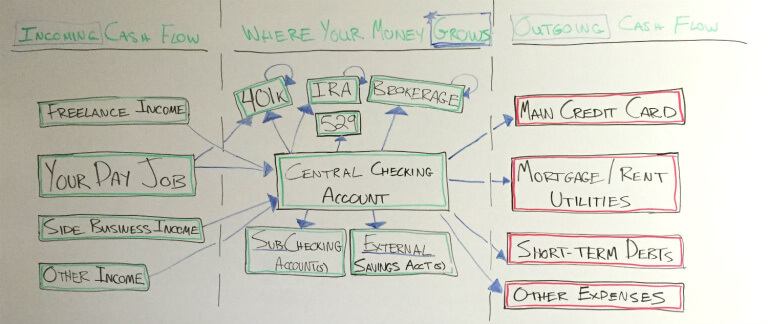Good or Bad? How Our Parents Have Influenced Our Financial Habits

Many people blame their parents for facing financial failures or drawbacks. Did your dad’s nose bar you from getting a prom date? And, what about your mom’s hips that absorb every piece of chocolate that you have?
Well, the shape of your wallet could also be impacted by your parents, but these traits come from your upbringing, not through genetics.
My attitude about money, whether I spend, save, find a financial balance or even the amount of money that I earn, is most often determined by my parent’s approach towards their dollars. Dr. Robin Siebold, a psychotherapist, says that it is “generally pretty tough to break past the level of success that your parents reached.”
It takes someone who recognizes the influence their parents and other surroundings have had on their financial habits, and a desire to be different and make a change.
With all that lessons learned, let me tell you something about myself. I was raised in Afghanistan, a third-world country by all means, but now I’m settled in the US, working as a software engineer.
As English was my third language throughout my career, ‘frugal’ or ‘frugality’ were never even a part of my vocabulary. That said, all the financial habits that I learned from my parents are no less than frugal, although I hardly realized this when I was young.
I belonged to a single-income family where my mother was a housewife and my dad was the sole bread-earner of our family. My dad has been my idol and here are the things that he taught me about finances that have changed my life.
There’s No Alternative to Saving Money
My dad never had enough money, but that didn’t keep him from taking care of my grandparents, my mom and me. Although they didn’t follow a budget, they did save a certain portion of their income. And like most other families, I didn’t lead a life of plenty in my childhood.
- We never had AC in our home
- I got new clothes and shoes just once in a year, most of which were sewn by my mom
- We never had a dishwasher in our home
- We never had cable television
- And we never discarded an item just because it was old.
That kind of life will teach someone how to be grateful and cherish what they have.
Before you start thinking that I missed the real fun of childhood, let me tell you that I had my fair share of entertainment. We had cultural evenings and also had family outings. All these aforementioned lessons taught me to distinguish between ‘needs’ and ‘wants’ and the considerations that we need to take into account before spending money.
Investing Doesn’t Have to Mean the Stock Market
Truly speaking, my dad rarely invested his dollars in the stock market, not because he didn’t know about it, but because he wished to avoid any risks while he already made a meager amount of funds. He instead invested in the tax-saving mutual funds, the workplace retirement accounts and as he didn’t have enough time to research about the investment markets, he always took help of the fund managers.
He bought barren land and this came out as a brilliant and lucrative real estate investment idea that taught me how to plan ahead of time. He always had an emergency cash reserve, which we call ‘rainy day fund’. The money from this account came of use during my grand mom’s terminal illness.
I’m certainly not asking you to lead a life like me, but with the present economic conditions in the US and the world, the times of huge houses and gas guzzling cars may be behind you.
Disciplined spending, hard and consistent action, looking for DIY alternatives and a good educational background can help you avoid debt and build wealth in the near future. Although there are professional options to help you get out of debt, you should always practice the right financial moves to stay safe than sorry.




